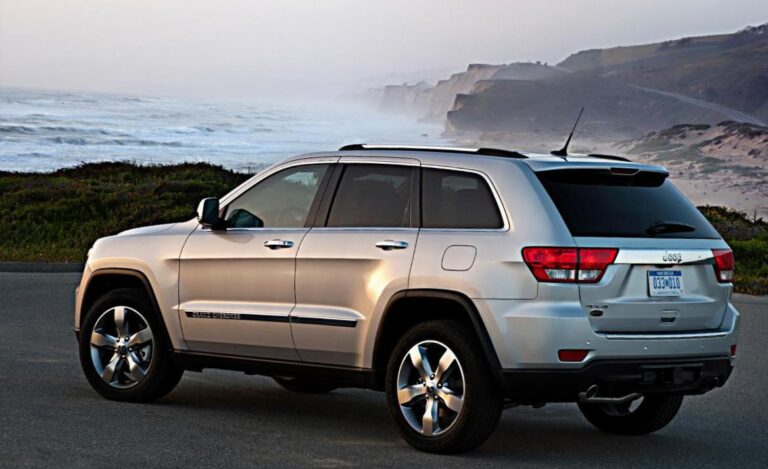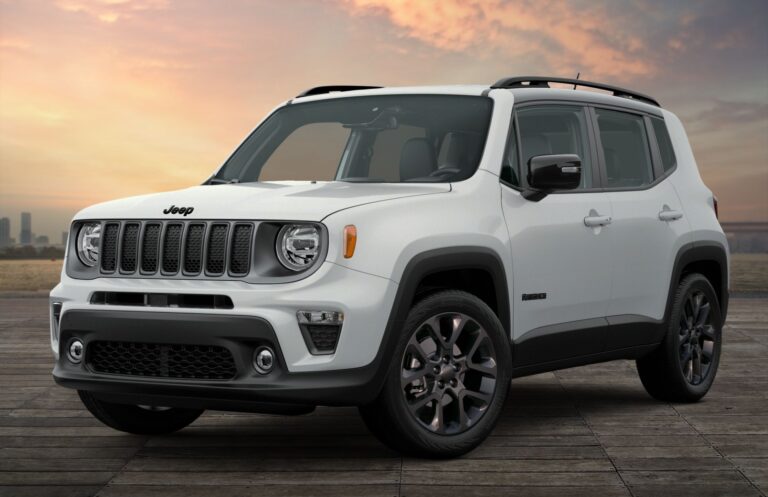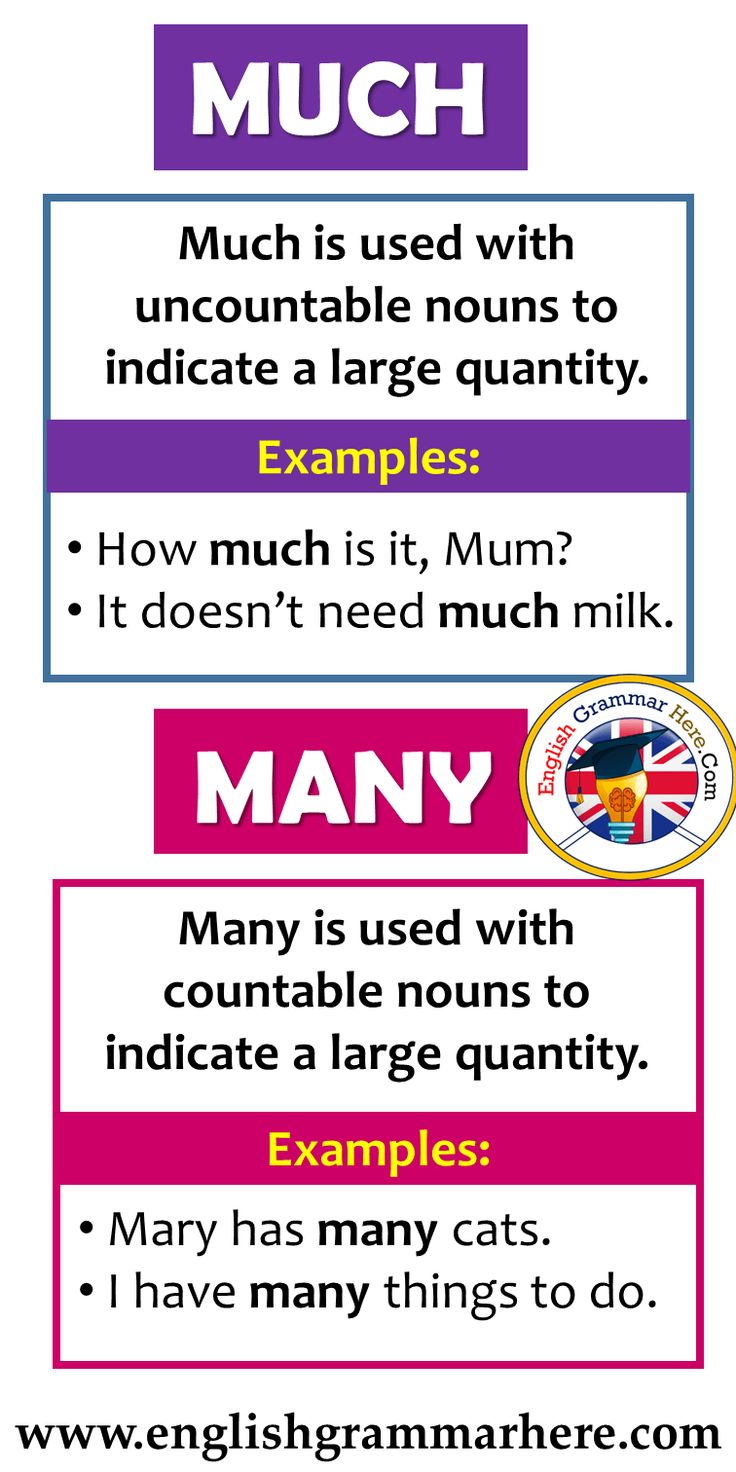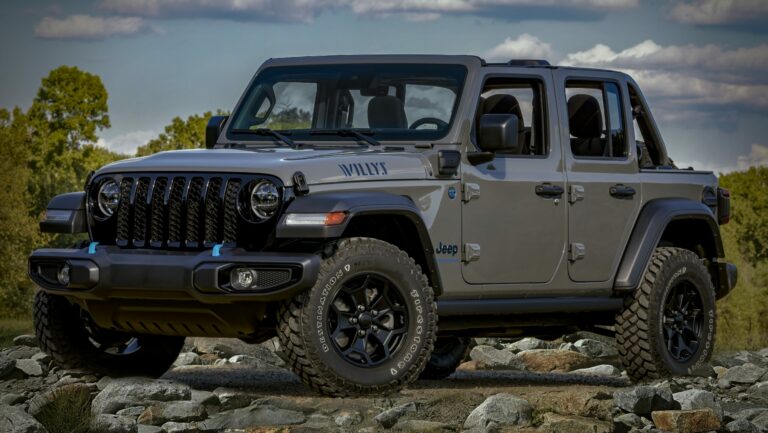Custom Jeep CJ For Sale: Your Ultimate Guide to Owning an Icon
Custom Jeep CJ For Sale: Your Ultimate Guide to Owning an Icon jeeps.truckstrend.com
Introduction: The Enduring Allure of a Custom Jeep CJ
The Jeep CJ, short for "Civilian Jeep," holds a legendary status in automotive history. Born from military roots, these rugged, open-air vehicles defined American adventure for decades. While original CJs are cherished classics, the market for "Custom Jeep CJ For Sale" has exploded, offering enthusiasts the best of both worlds: the iconic, timeless aesthetic of a vintage Jeep combined with modern performance, reliability, and comfort.
Custom Jeep CJ For Sale: Your Ultimate Guide to Owning an Icon
A custom Jeep CJ is more than just a vehicle; it’s a statement. It represents individuality, a passion for off-road prowess, and an appreciation for a bygone era of pure, unadulterated driving. Unlike a stock classic, a custom CJ has been meticulously modified, often from the ground up, to enhance its capabilities, refresh its appearance, or tailor it to a specific driving style. For many, purchasing a custom CJ is the realization of a dream, skipping the arduous and often expensive process of building one from scratch. This comprehensive guide will navigate you through the exciting world of custom Jeep CJs for sale, helping you understand what to look for, where to find them, and how to make an informed purchase.
The Enduring Appeal of the Jeep CJ Series
Before diving into customization, it’s essential to understand the foundation. The Jeep CJ series, produced by Willys-Overland, Kaiser-Jeep, and then AMC (American Motors Corporation) from 1945 to 1986, came in several iterations, primarily the CJ-5, CJ-7, and CJ-8 Scrambler.
- CJ-5 (1955-1983): The longest-running production run, known for its compact wheelbase, making it highly maneuverable on tight trails.
- CJ-7 (1976-1986): A slightly longer wheelbase than the CJ-5, offering more stability, particularly at highway speeds, and more interior room. This is arguably the most popular CJ for customization due to its balance of classic looks and practical dimensions.
- CJ-8 Scrambler (1981-1986): A pickup truck version of the CJ-7, featuring an extended wheelbase and a small bed. Highly sought after today due to its rarity and unique utility.
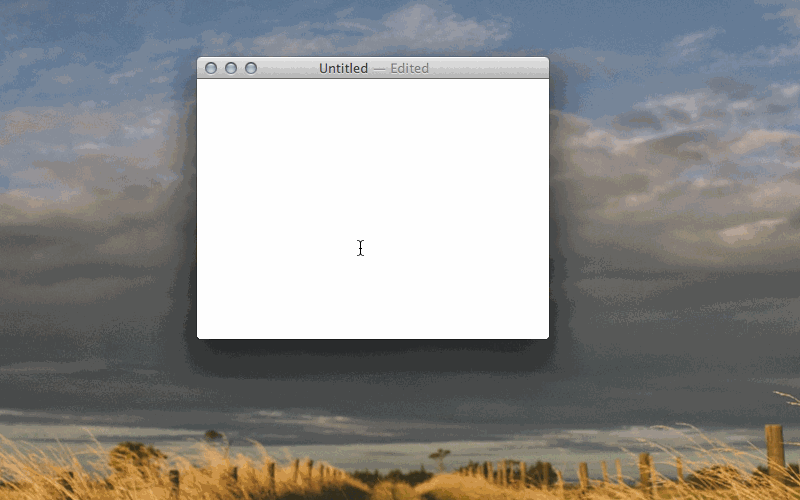
All CJs are revered for their simple, robust body-on-frame construction, solid axles, and rugged drivetrains, making them ideal platforms for extensive modification. Their timeless design, with exposed hinges, flat fenders, and removable tops/doors, evokes a sense of freedom and adventure that newer vehicles often struggle to replicate.
What Defines a "Custom" Jeep CJ?
A "custom" Jeep CJ goes beyond routine maintenance or minor bolt-on accessories. It implies significant modifications that alter the vehicle’s original form or function. These modifications can range from mild enhancements to extreme, frame-off rebuilds.
Common Areas of Customization:
-
Drivetrain:
- Engine Swaps: Replacing the original AMC or GM engines with modern powerplants like GM LS V8s, Ford Coyotes, or even Cummins diesel engines for increased horsepower, torque, and reliability.
- Transmission Upgrades: Swapping to modern automatic or manual transmissions for smoother shifts and better highway manners.
- Transfer Cases: Upgrading to stronger or lower-geared transfer cases for enhanced off-road crawling capability.
- Axles: Replacing stock axles with heavy-duty Dana 44s, Dana 60s, or custom-fabricated axles for increased strength and articulation, often accompanied by lockers for improved traction.
-
Suspension:
- Lift Kits: Installing spring-over-axle (SOA) conversions, coilover setups, or leaf spring lifts to gain ground clearance and allow for larger tires.
- Shocks: Upgrading to high-performance shocks for better damping and ride quality.
- Steering: Enhancements like power steering conversions (if not originally equipped), upgraded steering boxes, and heavy-duty steering linkages for better control with larger tires.
-
Body and Frame:
- Rust Repair/Replacement: Critical for older CJs. Many custom builds involve full frame-off restorations to address rust.
- Tub Replacement: Installing new fiberglass or steel tubs for a pristine, rust-free body.
- Fenders/Armor: Flat fenders, tube fenders, rock sliders, and skid plates for off-road protection and aesthetics.
- Roll Cages: Custom fabricated or bolt-in roll cages for increased safety.
- Paint: Custom paint jobs, often high-quality, multi-stage finishes.
-
Interior:
- Seating: Modern, comfortable seats with better bolstering and safety features.
- Dashboards: Custom dashboards with modern gauges, GPS, and audio systems.
- Flooring: Rhinolining or other protective coatings for durability and easy cleaning.
- HVAC: Adding or upgrading heating and air conditioning systems.
-
Electrical & Accessories:
- Rewiring: Often a necessity with engine swaps and accessory additions.
- Lighting: LED headlights, light bars, and auxiliary lighting.
- Winch: Essential for serious off-roading.
- Tires & Wheels: Larger, more aggressive tires on custom wheels tailored to the build.
Why Buy a Custom Jeep CJ?
The decision to buy a custom CJ rather than building one or purchasing a stock model offers several compelling advantages:
- Instant Gratification: Building a custom Jeep CJ from the ground up is a lengthy, complex, and often frustrating process. Buying a pre-built custom means you can drive and enjoy it immediately.
- Cost-Effectiveness: While custom CJs can be expensive, they are almost always less expensive than the sum of their parts and labor if you were to commission a similar build yourself. The builder takes the initial depreciation hit and the cost of their labor.
- Unique Identity: Each custom CJ is unique, reflecting the vision and craftsmanship of its builder. You’ll own a vehicle that truly stands out from the crowd.
- Enhanced Performance & Reliability: Modern engine swaps, upgraded drivetrains, and improved suspension components mean a custom CJ can often outperform and be more reliable than a stock vintage model, both on and off-road.
- Proven Concept: A custom build that has been driven and tested has likely had its kinks worked out, saving you the troubleshooting headaches.
Where to Find Custom Jeep CJs for Sale
Finding the right custom CJ requires diligence and knowing where to look:
-
Online Marketplaces:
- eBay Motors: Large selection, often with detailed descriptions and photos. Be wary of scams and always verify sellers.
- Craigslist/Facebook Marketplace: Good for local finds. Allows for direct communication and easier in-person inspections.
- Specialized Classic Car & Off-Road Classifieds: Websites like Hemmings, Bring a Trailer (for high-end builds), Off-Road.com classifieds, or forum marketplaces.
-
Specialized Dealerships:
- Many dealerships specialize in classic cars, custom builds, or 4x4s. These often offer higher-quality vehicles, but at a premium, and may provide financing options.
-
Custom Build Shops:
- Reputable Jeep customization shops often build and sell their creations. This can be a great way to buy a professionally built vehicle with known history and potentially a limited warranty.
-
Enthusiast Forums & Social Media Groups:
- Jeep CJ forums (e.g., JeepForum.com CJ section, Pirate4x4.com) and dedicated Facebook groups are excellent places to find CJs for sale directly from owners and get advice from experienced enthusiasts.
-
Auctions:
- High-end auction houses (e.g., Barrett-Jackson, Mecum) occasionally feature pristine custom CJs. Local auctions might also yield finds, but require quick decision-making.
-
Word of Mouth:
- Networking with local Jeep clubs and off-road communities can lead to private sales not advertised elsewhere.
Key Considerations Before Buying a Custom Jeep CJ
Purchasing a custom vehicle requires more scrutiny than buying a stock one.
-
Define Your Purpose and Budget:
- Purpose: Are you looking for a hardcore trail rig, a show vehicle, a casual cruiser, or a daily driver? Your intended use will dictate the type of build you need.
- Budget: Beyond the purchase price, factor in insurance, potential maintenance, and any immediate upgrades you might want to make. Custom CJs can range from $10,000 projects to over $100,000 showpieces.
-
Inspect the Build Quality:
- Professional vs. Amateur: While many talented DIY builders exist, professionally built vehicles often exhibit higher quality welding, wiring, and fit-and-finish.
- Wiring: A common weak point. Look for clean, organized, properly terminated wiring, especially with engine swaps. Avoid "spaghetti" wiring.
- Welding: Inspect welds on suspension components, frame repairs, and roll cages. Look for clean, consistent beads, not sloppy or porous welds.
- Rust: This is paramount. Thoroughly inspect the frame, body mounts, floorboards, cowl, and fenders for rust, especially in hidden areas. A rust-free frame is critical.
- Fluid Leaks: Check for leaks around the engine, transmission, transfer case, and axles.
-
Documentation and History:
- Receipts: Ask for receipts for major components (engine, transmission, axles, suspension) and professional labor. This verifies the quality of parts and work done.
- Build Photos: Many builders document their work. Photos of the build process can offer invaluable insight into the quality of the foundation and hidden work.
- Title and VIN: Ensure the title is clear, matches the VIN, and is transferable. Check for any salvage or rebuilt titles.
-
Pre-Purchase Inspection (PPI):
- This is non-negotiable. Hire an independent mechanic specializing in 4x4s or classic vehicles to perform a thorough inspection. They can spot issues you might miss.
-
Legality and Emissions:
- State Laws: Be aware of your state’s regulations regarding vehicle modifications, especially engine swaps and emissions testing. Some swaps may not be legal for street use in certain areas.
- Insurance: Discuss with your insurance provider how they cover custom or classic vehicles. You may need specialized classic car insurance.
-
Test Drive:
- Pay attention to steering play, braking performance, engine noises (knocking, ticking, unusual sounds), transmission shifting, and suspension feel. Drive it at various speeds, including highway speeds if possible, to check for vibrations or stability issues. Engage 4WD to ensure it works correctly.
Types of Custom Builds and What to Expect
Understanding the common types of custom CJs will help you narrow your search:
- Resto-Mod (Restored & Modified): These CJs maintain a classic, often near-stock exterior appearance but feature significant modern upgrades under the skin, such as a new engine, transmission, axles, power steering, and air conditioning. They offer classic looks with modern comfort and reliability. Expect higher prices for quality resto-mods.
- Hardcore Trail Rig: Built purely for extreme off-roading. These will feature heavy-duty axles, aggressive lockers, massive lift kits, external roll cages, beadlock wheels, and often stripped-down interiors. They might not be comfortable or even street-legal in all areas.
- Showstopper/Pavement Princess: These CJs prioritize aesthetics over off-road capability. They boast flawless paint, chrome accents, pristine interiors, and highly detailed engine bays. While they look incredible, they might have limited articulation or practical features for true off-roading.
- Budget Build/Work in Progress: These are often DIY projects that may be incomplete or built with budget in mind. They can offer great value if you have the skills or budget to finish them, but buyer beware – incomplete projects can quickly become money pits.
Estimated Price Ranges for Custom Jeep CJs
The price of a custom Jeep CJ varies wildly based on the quality of the build, components used, condition, and market demand. Here’s a general guide:
| Category | Description | Estimated Price Range |
|---|---|---|
| Project/Mild Customization | Older, less pristine condition CJs with basic lifts, larger tires, or minor cosmetic/mechanical upgrades. May require significant work to be fully roadworthy or trail-ready. Good for those wanting to finish a build. | $5,000 – $20,000 |
| Moderately Customized/Well-Maintained | Solid, running CJs with significant suspension and drivetrain upgrades, often a refreshed engine or mild swap, good paint, and a usable interior. Capable off-roaders and reliable cruisers. | $20,000 – $45,000 |
| High-End Resto-Mods/Professionally Built | Frame-off restorations, modern engine swaps (LS, Hemi), custom heavy-duty axles, high-quality branded components, professional wiring, pristine paint, and comfortable, modernized interiors. These are often show-quality or exceptionally capable trail vehicles built by reputable shops. | $45,000 – $100,000+ |
| Elite / Bespoke Builds | One-of-a-kind, no-expense-spared builds with unique chassis, custom fabrication, top-tier components, and flawless execution. Often commissioned builds that push the boundaries of CJ customization. | $100,000 – $250,000+ |
Factors that Significantly Influence Price:
- Rust: The presence and extent of rust (especially frame) is the single biggest factor. Rust-free commands a premium.
- Engine Swap: The type and quality of engine swap (e.g., professionally installed LS vs. carbureted 350) dramatically affects value.
- Axles: Upgraded heavy-duty axles (Dana 44s, Dana 60s) add significant value.
- Transmission & Transfer Case: Modern automatic or robust manual transmissions and strong transfer cases are desirable.
- Paint & Body: Quality of paint, bodywork, and tub (fiberglass vs. steel replacement).
- Interior: Modern seating, dash, gauges, and amenities (AC, sound system).
- Documentation: Comprehensive receipts and build photos increase confidence and value.
- Brand Reputation: Builds from well-known custom shops often fetch higher prices.
Practical Advice and Actionable Insights
- Be Patient: The perfect custom CJ might not appear overnight. Don’t rush into a purchase.
- Ask Detailed Questions: Don’t be shy. Inquire about every modification, who performed the work, and why.
- Verify Claims: If the seller claims a specific engine or axle, ask for proof or verify it during inspection.
- Understand the Compromises: A heavily modified off-road rig might be loud, rough-riding, and uncomfortable on the street. A show vehicle might not handle trails well.
- Factor in Shipping: If buying out of state, get quotes for transport.
- Negotiate: Always negotiate the price. There’s usually some wiggle room.
- Join a Community: Connect with local Jeep clubs. Their members can be a great resource for advice, leads, and even helping with inspections.
Frequently Asked Questions (FAQ)
Q: What’s the main difference between a CJ-5, CJ-7, and CJ-8?
A: The primary difference is wheelbase and length. The CJ-5 is the shortest, offering extreme maneuverability. The CJ-7 is longer, providing more stability and interior room. The CJ-8 Scrambler is the longest, featuring a small pickup bed.
Q: Are custom CJs reliable?
A: Reliability largely depends on the quality of the customization. A well-built custom with modern components (engine, transmission, wiring) can be significantly more reliable than a stock vintage CJ. Poorly executed builds, however, can be a nightmare. A thorough pre-purchase inspection is crucial.
Q: Can I use a custom CJ as a daily driver?
A: Some custom CJs, particularly "resto-mods" with modern drivetrains, power steering, and air conditioning, can be comfortable and reliable enough for daily driving. Heavily modified trail rigs, however, are often noisy, rough-riding, and less practical for daily commutes.
Q: How do I insure a custom CJ?
A: Standard auto insurance companies may not fully cover highly customized or classic vehicles. It’s best to seek specialized classic car insurance providers (e.g., Hagerty, Grundy) who understand the unique value of such vehicles and can offer agreed-value policies.
Q: What should I look for regarding rust on a CJ?
A: Common rust spots include the frame (especially where body mounts attach), floorboards, rocker panels, rear crossmember, cowl area (under the windshield), and around the headlights and taillights. A magnet can help detect body filler over rust.
Q: Are parts readily available for CJs?
A: Yes, the aftermarket for Jeep CJs is robust. Many companies still manufacture reproduction body panels, interior parts, mechanical components, and a vast array of aftermarket upgrade parts. Engine swap kits are also widely available.
Q: What’s a common engine swap for a CJ?
A: GM LS-series V8s (e.g., 5.3L, 6.0L) are arguably the most popular due to their power, reliability, widespread availability, and extensive aftermarket support. Other common swaps include Ford 5.0L V8s and various diesel engines.
Conclusion: Owning a Piece of Jeep History, Reimagined
The world of custom Jeep CJs for sale offers an incredible opportunity to own a legendary vehicle that has been reborn for modern adventures. Whether you dream of conquering the toughest trails, cruising with classic style, or simply owning a unique piece of automotive art, there’s a custom CJ out there waiting for you.
By understanding the different types of builds, knowing where to look, and meticulously evaluating each potential purchase, you can make an informed decision that brings you years of enjoyment. A custom Jeep CJ is more than just a ride; it’s an experience, a statement, and a testament to the enduring spirit of adventure that the Jeep brand embodies. Embrace the journey, do your homework, and soon you could be behind the wheel of your dream custom CJ, ready to forge new paths and create unforgettable memories.

